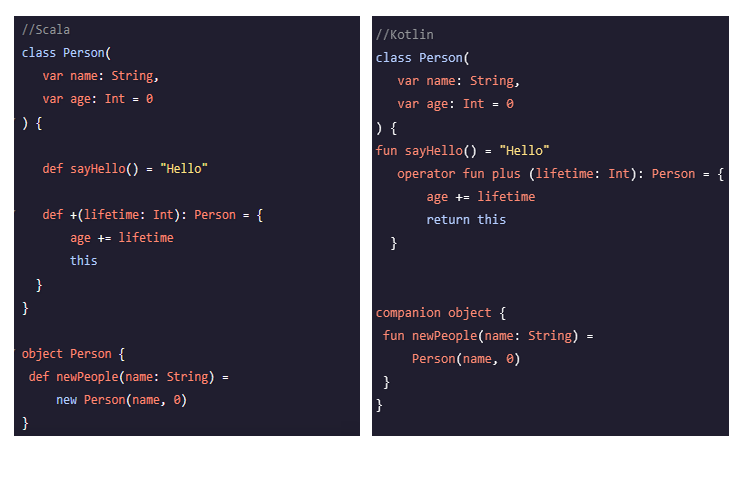
Unit is a type and therefore can be used as a type argument.The main characteristics of Unit against Java’s void are: In Java if we want that a function does return nothing we use void, Unit is the equivalent in Kotlin. methods toString, equals and hasCode are inherited from Any while to use wait and notify you will need to cast your variable to Object to use them. Any can’t hold the null value, if you need null to be part of your variable you can use the type Any?.In Java, primitives types aren’t type of the hierarchy and you need to box them implicitly, while in Kotlin Any is a super type of all types.It differs to Java’s Object in 2 main things: Popular Examples Kotlin Program to Get Current Date/Time Kotlin Program to Convert List to Array and Vice-Versa Kotlin Program to Convert String to Date. In Kotlin the Any type represents the super type of all non-nullable types.

Object is the root of the class hierarchy in Java, every class has Object as a superclass. We will see here how Kotlin represent these types and how it improves them. Java has Object to represent the root of the class hierarchy and voidto represent the lack of a type. Infrastructure for China (AliCloud or openshift or any other option) to deploy the DSM APIs. DSM APIs rolled out to all markets (except for China) and all consumers shifted to new APIs.

The goal of the project is to demonstrate best practices, provide a set of guidelines, and present modern Android application architecture that is modular, scalable, maintainable and testable. Photo by Mr Cup / Fabien Barral on Unsplash Capability uplifts that can enable direct connections to new DMPs without Centiro, for example - Data persistence, and non-functional testing. Kotlin Sample App is a sample project that presents modern, 2019 approach to Android application development using Kotlin and latest tech-stack.


 0 kommentar(er)
0 kommentar(er)
